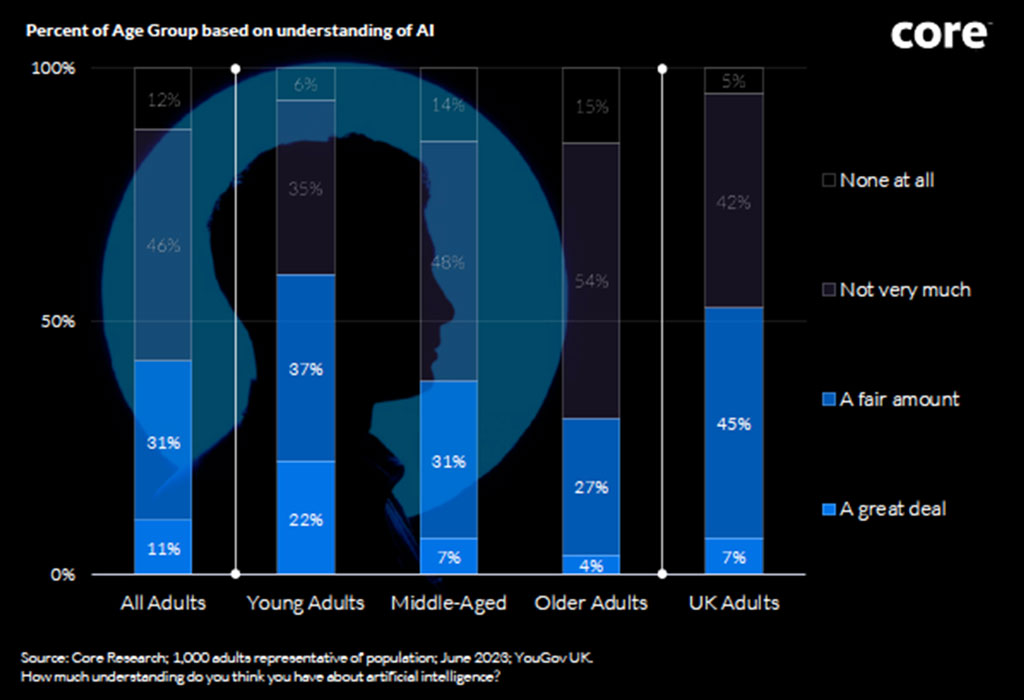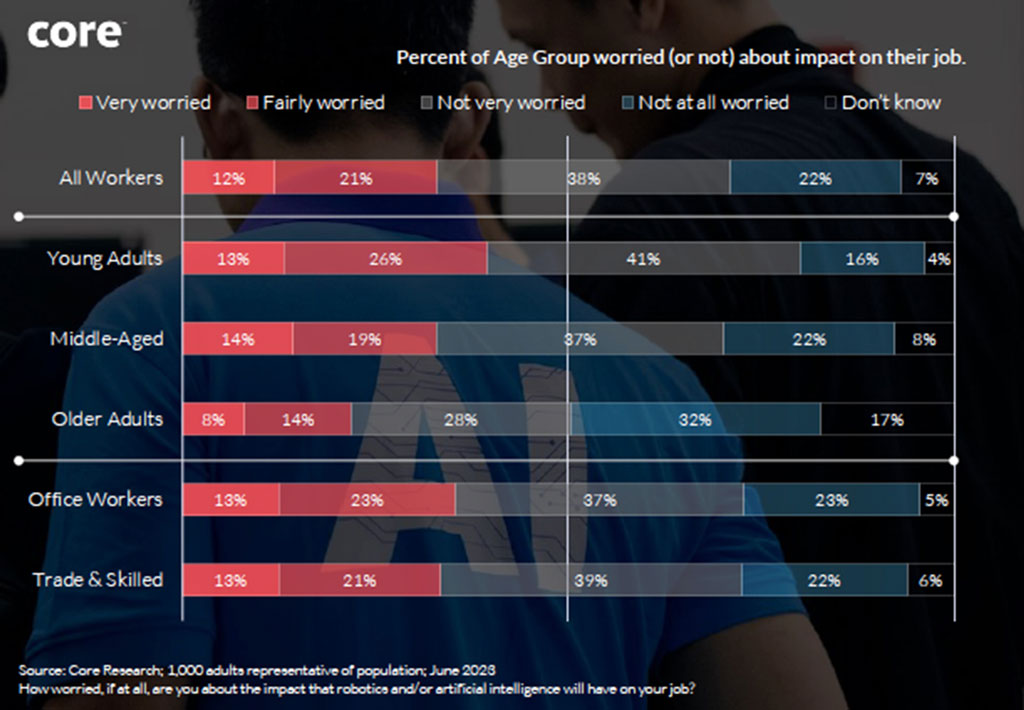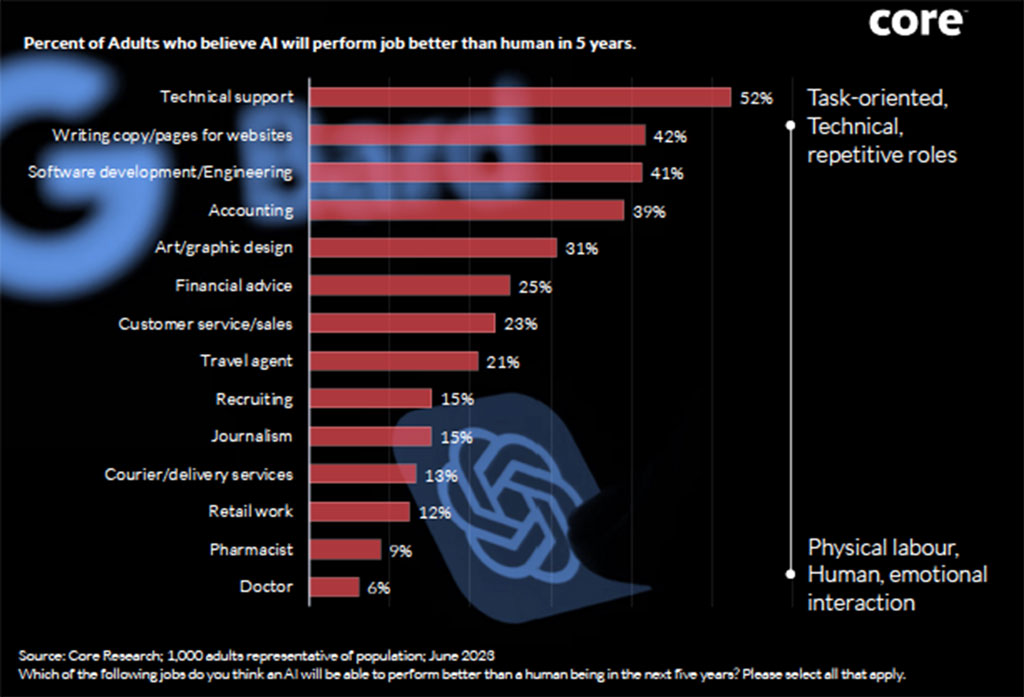With artificial intelligence (AI) continuing to dominate many headlines and public debate, new research shows that there is a low level of AI literacy amongst the Irish public while a majority of Irish workers are not worried about its various applications and its potential to replace their jobs.
The research, “Is Ireland Ready for AI?” was carried by the marketing services group Core and it delves into the public’s perception, thoughts, and concerns about AI.
According to the research, 58% of all adults in Ireland say they understand AI “not very much” or “none at all.”
Those aged between 18-35 are most likely to say they understand AI, according to the research with 37% saying they know “a fair amount” with a further 22% saying they know “a great deal.” Only 6% of this generation say they know “none at all.”
Amongst older generations, however, less than 40% of people say they understand AI.
“While understanding of AI might be within the minority of the public, the majority of people are using technology tools which have artificial intelligence built in,” the report notes.
“89% of people say they use email every week, and 74% of people say they are using social media weekly. Both are using AI to analyse content and serve up relevant information. In addition, 43% of people say they have benefited from a recommendation on Spotify, Netflix or Amazon in the past week, which again is built on.”
When it came to the possible displacement of workers, the majority of people said they were not worried about AI, according to the research.
“The majority (60%) of workers are not worried about AI, but Young Adults, those with the highest level of familiarity with AI are the most worried about the impact of AI on their jobs (39% of those aged under 35 years old). This younger generation will have to adapt more than any other generation to work and life changes,” the report notes.

“Older adults, despite having self-reported little to no knowledge of AI for the most part, are also the least worried about the future of their jobs when it comes to AI. This could be a lack of understanding for the potential use of it, or equally could be complacency as they approach the end of their careers and a view that they won’t be in the workforce for much longer to see their roles change by much,” says Lisa Dunn, paid search director with Core and author of the report.
“Task-oriented, technical, and repetitive roles are seen to be most likely to be bested by AI. Many of the top jobs are sectors that have largely been outsourced already for scale and cost-saving, so a natural progression to leverage AI in these spaces is easy to see,” she says.
“Many customer service teams already leverage chat-bots, so moving away from the scripted conversations to more advanced conversational systems is a natural next step.”
The research also found that when it came to AI’s future applications in the workplace, only 15% believe that it would displace the work of journalism while just 6% believe doctors might be under threat.
“It appears that the public value the skills, opinions and nuanced work of journalists pharmacists and doctors, with very few people believing AI will do a better job than these professionals in five years time. Similarly, the public don’t believe couriers, retail workers or recruiters will be substituted in the next decade,” says Dunn.
When it came to the levels of optimism surrounding AI only 24% of all adults are optimistic about the impact that it would have overall. This compares to the 42% who are pessimistic.
“This pessimism about AI’s impact is driven by those aged over 35 years old, who also claim to have low levels of AI literacy. 44% of middle-aged people say they are pessimistic about AI’s impact and 49% of adults aged over 55 years old agree,” Dunn adds.
“However, understanding, not ignorance of AI appears to have an impact on future predictions. Of those who say they have a fair understanding of AI, optimism about the future of AI rises to 38% of adults, compared to 36% who are pessimistic,” she says.
To download a full copy of “Is Ireland Ready for AI?” click HERE
























